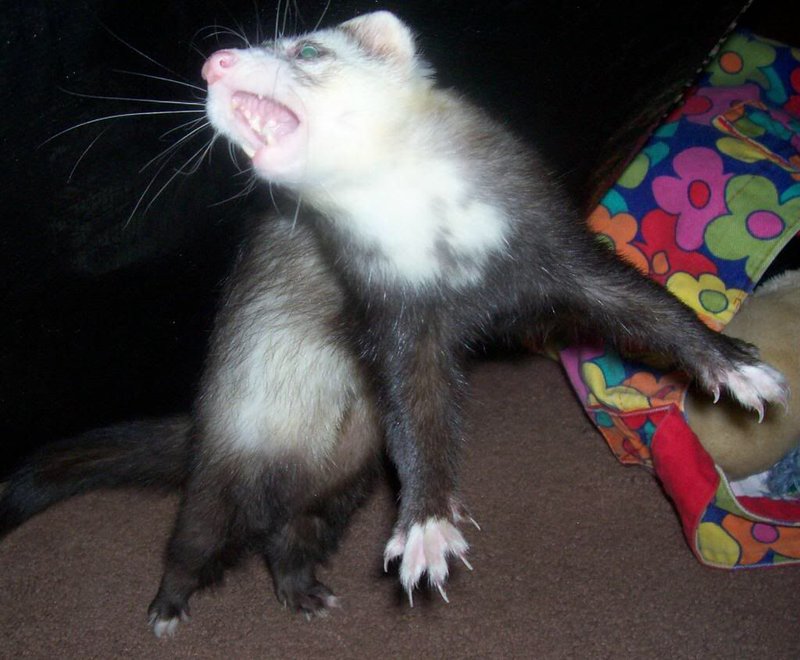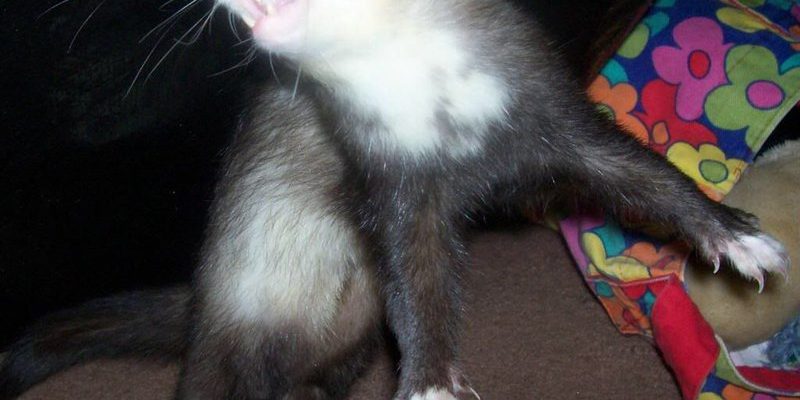
Honestly, understanding ferret behavior is like cracking a secret code. These little guys express themselves in ways that can be both amusing and perplexing. Whether they’re spinning in circles or making funny sounds, each action has its own meaning. Think of it as a dance, where every move tells a story about their mood and environment. Let’s dive into the vibrant world of ferret behavior, explore their antics, and decode what makes them tick.
What is Dooking?
Dooking is one of the most delightful sounds you can hear coming from a ferret. It’s a sort of chuckle or chortle that might remind you of a little giggle. But what does it mean? When a ferret dooks, it’s usually a sign of happiness and excitement. They might be playing, feeling frisky, or just enjoying life.
You might notice this sound when your ferret is playing with toys or engaging with you. Imagine this scenario: you toss a soft ball across the room, and your ferret pounces after it, making joyful dooking sounds. It’s their way of saying, “This is so much fun!” If you hear a lot of dooking, it’s a good indicator that your ferret is feeling vibrant and playful, ready to entertain you and themselves.
Dooking often comes with other playful behaviors. For example, you might see them running around in circles or making sudden, energetic leaps. It’s like they have their own little celebration every time they engage in play. So, when you hear that distinctive sound, join in the fun and engage with your feisty friend!
The Ferret War Dance
Next up is the infamous war dance—a term that sounds a bit more intense than it actually is. When you see a ferret doing their war dance, it often involves a lot of hopping, twisting, and darting back and forth. It’s their way of expressing sheer joy and excitement, and it can be absolutely hilarious to watch.
Here’s the thing: the war dance usually happens when a ferret is feeling their best. Maybe it’s after a good meal, during playtime, or when they’re just feeling hyper. Picture a small child who’s just had a bit too much sugar—running around, jumping in the air, completely carefree. That’s your ferret having a party of its own!
While the dance is entertaining, it’s also a sign that your ferret is healthy and content. If your ferret suddenly stops dancing or seems less energetic, it may be worth checking in on them. Just like humans, ferrets have their ups and downs, and this dance is a cheerful reminder of their natural instincts and happiness.
Digging and Burrowing Behaviors
Ferrets are natural diggers, and you might notice them scratching at blankets, carpets, or even your shoes. This digging behavior is rooted in their instinctual desires. In the wild, ferrets dig to create burrows for sleeping or hiding from predators.
When your ferret digs at your couch or bedding, it’s not just randomly being naughty; it’s driven by a need to explore their environment. You might find them creating a little “nest” where they feel safe and cozy. To accommodate this natural behavior, consider providing them with digging boxes filled with safe, soft materials they can burrow into.
If you’re wondering how to manage this behavior, giving them appropriate outlets can help. Make a designated digging area with sand or soft fabric. Not only does this satisfy their instincts, but it also keeps your belongings safe from their enthusiastic paws.
Understanding the Chill-out Mode: Ferret Slumber
After all that play, you’ll often find your ferret curled up and snoozing. Ferrets typically sleep for around 18 hours a day, but this isn’t just laziness; it’s their natural rhythm. Think of them as adorable little ninjas who recharge after their energetic antics.
While they sleep, ferrets enter a deep slumber that’s often lightened by quick dreams. You might even see their little paws twitching or hear soft chirps. This dreaming is a sign that they’re processing information and experiences, much like humans do.
Creating a comfortable sleep environment for your ferret is essential. A cozy bed in a quiet corner can help them feel safe and secure, leading to restful sleep. When they wake up, expect them to bounce right back into action, ready to take on the world.
Body Language: What to Look For
Ferrets communicate a lot through their body language. By understanding their postures and movements, you can gain insights into their feelings. For example, if your ferret raises its tail high, that’s typically a sign of confidence and happiness. On the flip side, if they arch their back and puff up their fur, they might be feeling threatened or scared.
Here’s a fun observation: when ferrets are excited, they often do this cute little wiggle. It’s like they’re saying, “I’m so happy!” or “I can’t wait to play!” If you see this behavior, it’s a great time to engage with them.
Recognizing your ferret’s body language helps you build a stronger bond. You’ll learn to understand what they like, what they don’t, and how to respond in ways that make them feel safe and happy. Keep an eye on their movements; it’s like having a little window into their world.
Why Play is Essential for Ferrets
Playtime isn’t just fun; it’s crucial for a ferret’s well-being. Engaging in play helps them exercise and stimulates their minds. Ferrets are naturally curious and need mental challenges to keep them from getting bored.
You might be wondering what types of play your ferret enjoys. They generally love activities that mimic hunting and exploring. Think about interactive toys, tunnels, or even chasing a feather on a string. These games not only keep them physically active but also provide essential social interaction with you and other ferrets.
Plus, play isn’t just about exercise; it builds trust and strengthens your bond. The more you play with your ferret, the more they learn about you, and the more you’ll understand their quirks. In the end, it’s a win-win situation that contributes to a happy, healthy ferret.
Understanding ferret behavior opens up a whole new world of connection with your furry friend. From the joyful dooking to the energetic war dance, each behavior reveals something special about their personality. Remember, ferrets are complex creatures, and getting to know them requires patience and attention.
As you observe their playful antics and unique quirks, you’ll find that there’s rarely a dull moment. Embrace their natural instincts, provide plenty of play options, and create a comfortable environment for them to thrive. The more you engage with and understand your ferret, the deeper your bond will grow.
So, whether you’re a first-time ferret owner or a seasoned pro, appreciating their behavior can transform your experience. Dive into their lively world, enjoy the laughs, and celebrate the unique joys that come with having a ferret.

